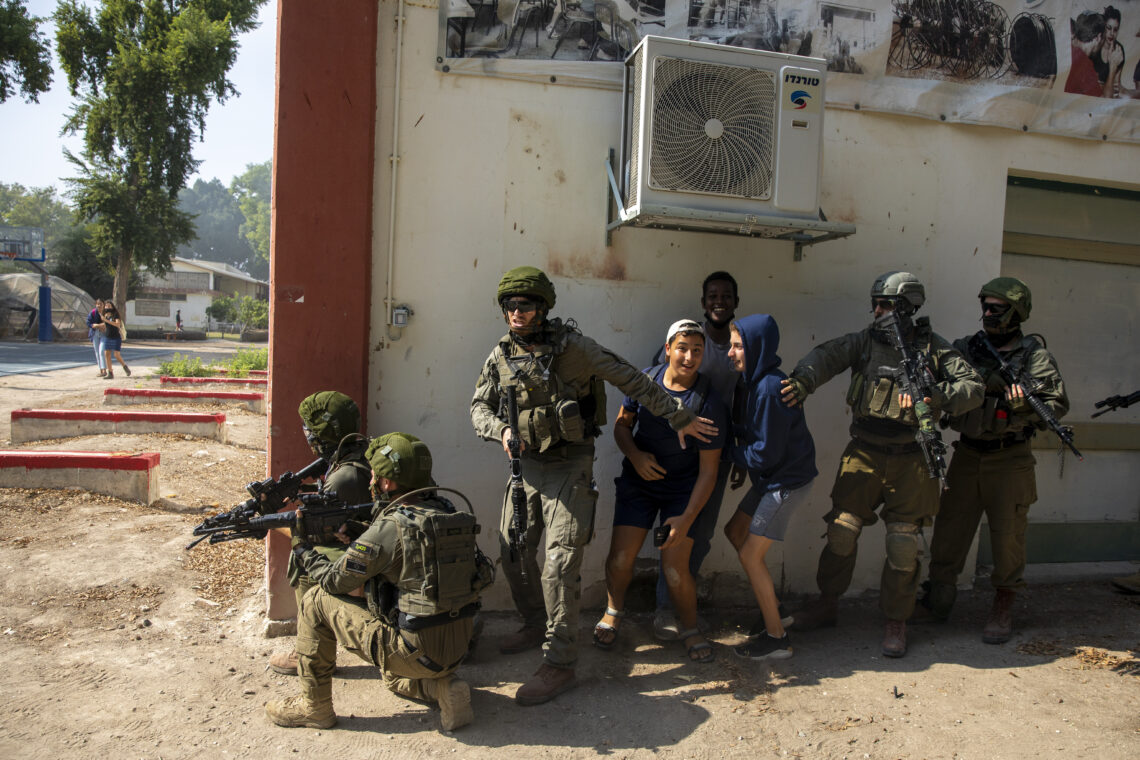Israeli special forces carry out missions behind enemy lines, which are classic missions for such soldiers. The aim of the raids is to gather intelligence and investigate Hezbollah’s capabilities.
Special forces will, among other things, utilise Hezbollah’s own tunnels to cross the border.
These could be missions carried out ahead of a possible broader ground invasion that could come as soon as this week, people familiar with the matter say, according to the Wall Street Journal.
The timing of any ground action could change, sources told the WSJ, as Israel is under intense pressure from the US not to carry out a major invasion. It was not immediately clear how long Israel would aim to hold the territory, or whether the incursion would be more like a series of larger raids.
Amir Avivi, a former senior Israeli military official, says the raids are part of preparations for an imminent ground invasion.
“The IDF has made many preparations for a ground attack. This always includes special operations. This is part of the process.”
Hezbollah appears to be so weakened that Israel’s dilemma will actually be how far to go into Lebanon and when to pull out, according to Avivi.
Israel’s government is under double pressure. As usual, the West is clamouring for a ceasefire and dreaming of a two-state solution. But 60,000 Israelis are internal refugees from the territories in the north, and naturally want to return home in safety.
A senior Israeli official said last week that the country hoped to avoid a ground invasion. But at the same time, the Israel Defence Forces (IDF) has called up five additional brigades of reservists, and all indications are that they are preparing to cross the border.
Right now, there seems to be a balance between political desires and military strategic goals. But both Netanyahu and the IDF commander, Lieutenant General Herzi Halevi, seem to believe that an invasion is necessary. Neither of them is likely to care much about pressure from abroad.
The US and Arab countries have always said they want a diplomatic solution to the crisis and have warned against the risk of a regional war. But Iran seems to be counting on the buttons, and without Iran’s interference, the task is manageable for Israel’s military forces. What’s more, the US has increased its presence in the region precisely to deter Iran.
The Pentagon said on Sunday that it would keep the aircraft carrier convoy USS Abraham Lincoln and its associated ships near the Red Sea. The Lincoln was expected to leave the area when the USS Harry S. Truman carrier group arrived.
A ground operation will come after two weeks of extensive intelligence operations, targeted killings and heavy bombardments aimed at destroying the command and control systems and weapons stockpiles of the US-classified terrorist group. Israel carried out air strikes against more than 2,000 targets last week, in the heaviest bombardment of Lebanon in years, the military has said.
The biggest success so far was when the IAF (Israel Air Forces) succeeded in killing Hezbollah leader Hassan Nasrallah in a successful attack on Beirut. It is not clear who will take over the leadership position, but Hezbollah deputy leader Sheikh Naim Qassem says that a new leader of the movement will be in place shortly.
Hezbollah started its rocket attacks against Israel the day after the terror on October 7, and is said to have fired more than 11,000 missiles that have mainly hit northern Israel.


